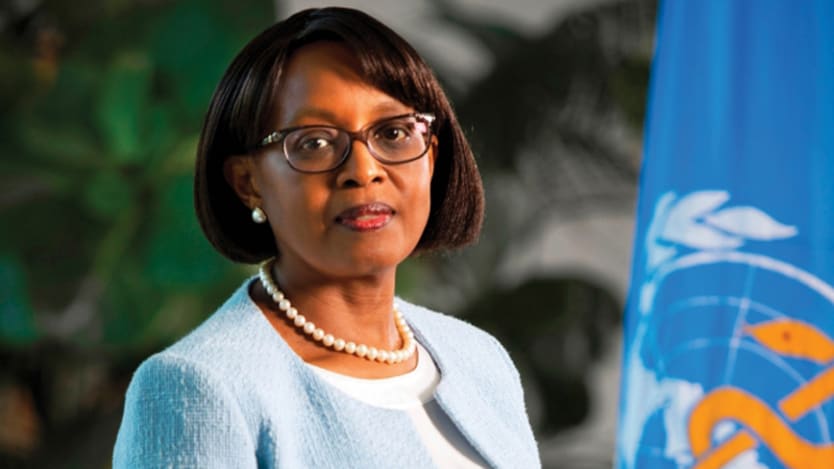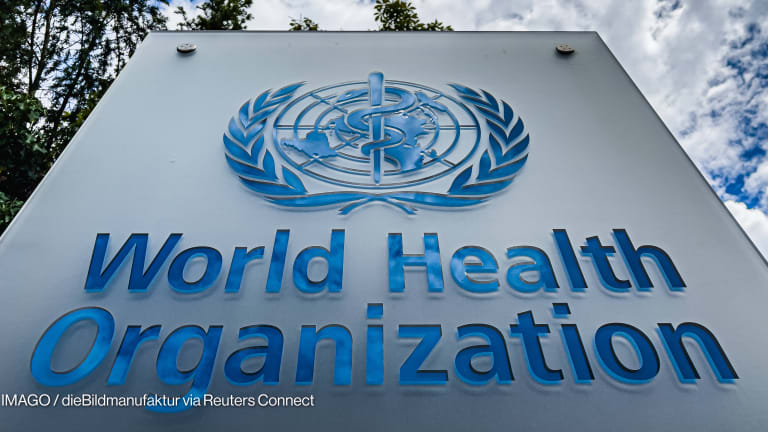
ABU DHABI — The World Health Organization’s pivot toward a more operational role is likely to be the topic of scrutiny and potential tension with donors in a meeting of the Executive Board this week in Geneva, a senior official tells Devex.
Since he became director general in May, Dr. Tedros Adhanom Ghebreyesus has pushed to give the organization both the resources and the structure to take on a more active role in the field. Many major donors, however, have told the WHO to stick to its traditional, guideline-setting role.
“I’m very keen to see” a more operational role, said Matshidiso Moeti, WHO regional director for Africa. “I’m just very aware that in the last few years, the major donors of WHO have been telling us to stick to our normative role,” she told Devex from the sidelines of the Reaching the Last Miles summit in Abu Dhabi last week.
“This is a new discussion,” she said. This week’s meeting in Geneva will address Tedros’s proposed General Program of Work, “where this idea of being more operational is articulated,” she said. “It’s going to be a very interesting meeting in Geneva … with the very group that is so often reminding us, prioritize first, and secondly, stick to your normative role.”
The WHO’s rationale for moving closer to the field is to fill gaps in countries where capacity is limited or zero. WHO wouldn’t be administering care directly, but rather coordinating and administering programming, for example. In countries such as South Sudan, Afghanistan, or even areas of Nigeria, Moeti said, the lack of state actors and chronic insecurity means that WHO is among the only parties able and willing to take a hands-on role.
“What needs to be considered is the diversity of contexts in which WHO works,” she said. “Where the situation is such that there are gaps unless we step in, we would like to be able to step in.”
The debate about whether WHO should take on an expanded role comes with the backdrop of perpetually strained budgets at the organization. As much as 80 percent of the organization’s funding draws from voluntary contributions — many of which are intended for specific programs such as polio eradication. Operating closer to the frontlines of internal strife, or in areas with little infrastructure of public services, would likely further stretch funds, as well as staff capacity. Many of the organization’s employees are technical experts rather than field staff.
Despite donor reservations, however, at least some of the shift is already taking place, adjusting staffing, structure, and organization within regional offices, Moeti said.
“We are going beyond our normative and advisory role when the country does not have its own sufficient capacity to carry this out,” she said. WHO is “getting out to the peripheral level, which means we will have to [have] offices that are structured and staffed differently; ways of working that are different, and additional resources to be able to put these operations in place.”
Such a pivot requires a new modus operandi that could shift the organization’s ethos, as well as its priorities. Particularly in situations of insecurity, “you have to think not only of programs but of security, protection, and you are learning to work in very different ways — with the armies, people we never used to talk to in the past,” she said.
In Iraq, for example, the organization worked closely with the military to set up a chain of care such that injured civilians could be evacuated from Mosul, the battle to retake that city from the Islamic State earlier this year.
In the Lake Chad basin of West Africa, meanwhile, Moeti said that her office has recently hired its first-ever security expert, “speaking the same language as these military people and then bringing it back and linking it with the organization and technical work,” she said. The expert will help coordinate campaigns, for example to vaccinate against polio.
“We are not just sitting in Abuja developing policy papers,” Moeti explained. “We are working with local leaders, working with their micro-planning … liaising with security people.” She added, “We’re very much on the ground on these issues.”
This week’s meetings are the first of several in the coming months to discuss the GPW. The board will meet again in January, as well as during the World Health Assembly in May 2018.
Read more Devex coverage on World Health Organization.
Read more related stories:
► WHO initiative aims to tackle health impacts of climate change
► Q&A: Pedro Alonso, director of WHO's Global Malaria Program
► The Pacific response to WHO's planned program of work
► Health priorities for the Pacific: Insights from WHO's Regional Committee for the Western Pacific








